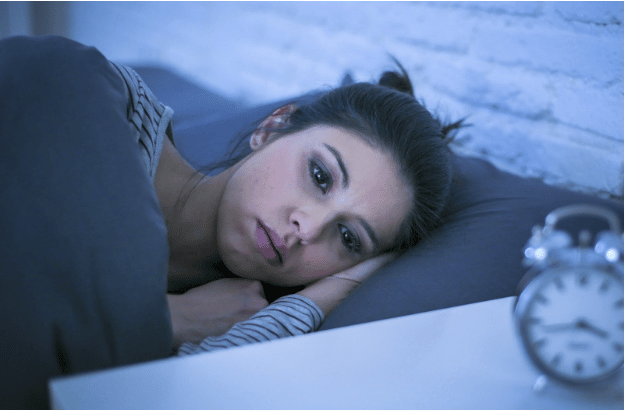Ambien & Alcohol: 4 Reasons Not to Mix Them
Written by Nicole LaNeve
& Medically Reviewed by Nanci Stockwell, LCSW, MBA
Medically Reviewed
Up to Date
Updated 10/28/2022

Lacking quality sleep can be a detriment to good health. In an effort to get some decent rest at night, some people take medication such as Ambien. Other people turn to alcohol to help them calm down and prepare themselves for a restful sleep.
However, some people mix Ambien and alcohol, which is a dangerous combination that can cause adverse health effects and can lead to an addiction. Unfortunately, people who are desperate to get restful sleep may go to great lengths to do so, even if that puts their health at risk.
What Is Ambien?
Ambien, which is the brand name for zolpidem, is a commonly prescribed sleep aid and is used to treat sleep disorders such as insomnia. It works by helping to entice the brain to fall asleep by relaxing the brain so that sleep will soon follow.
That relaxed state is precisely the state of mind people with sleep disorders have difficulty achieving, which is why they cannot get to sleep nor stay asleep.
Reasons to Avoid Mixing Ambien and Alcohol
While both Ambien and alcohol are effective at helping to relax, there are important reasons to avoid mixing the two.
1. It Is Dangerous
Consuming too much alcohol can have negative effects on a person’s health. At the same time, taking too much Ambien over an extended period can also have detrimental health effects.
Mixing the two can amplify the adverse effects on the body. Dangerous drug interactions take place when these substances are mixed. Since they are both classified as depressants, the harmful repercussions of taking both at the same time cannot be controlled.
Ambien and alcohol depress the central nervous system, which slows the heart rate and the respiratory system. By mixing Ambien and alcohol, respiration and heart rate can slow down so much that coma or death can occur. Even if these severe effects do not take place, combining depressants can cause major physical and cognitive impairment and can cause permanent liver damage.
Other negative, physical symptoms of mixing Ambien and alcohol include:
- Extreme drowsiness
- Dizziness
- Confusion
- Difficulty focusing
- Poor judgment
- Sleepwalking
- Sleep apnea
2. Addiction Can Develop
Doctors who prescribe Ambien usually only provide two-week prescriptions because of the potential for dependence and addiction to develop with prolonged use. While patients are on Ambien, physicians keep a close eye on them to identify any potential signs of Ambien misuse.
People who are desperate to get good sleep may become dependent on the drug if they take it for longer than the prescribed length of time. With continued use, patients may increasingly seek out the help of Ambien for sleep, but with extended use, the drug may not be as effective. In these cases, the patient may increase their dosage and continue using Ambien far longer than is safe, which can lead to addiction.
Since alcohol is also a potentially addictive substance, mixing the two can boost the odds of addiction.
3. Increased Risk of Overdose
Combining any two or more drugs increases the risk of unintentional overdose. Signs of an Ambien overdose or an overdose caused by a combination of Ambien and alcohol include:
- Myosis (pupils that are unusually small under normal lighting conditions)
- Depressed breathing
- Slurred speech
- Inability to wake
- Coma
- Death
4. It Can Make Withdrawal Symptoms Worse
If addiction does develop, abusing multiple substances, or polysubstance abuse, can complicate the detox process and necessitate more medical care. In a study by The Recovery Village, polysubstance abuse increased the likelihood of experiencing more dangerous or severe withdrawal symptoms during alcohol detox. Compared to respondents who were only detoxing from alcohol, people detoxing from alcohol and at least one other substance were:
- 2.14 times more likely to experience Delirium tremens (DT)
- 2.25 times more likely to experience seizures
- 1.6 times more likely to experience hallucinations
Treating Addiction to Ambien and Alcohol
Prolonged Ambien and alcohol misuse can be a hazardous – and even fatal – mixture. If you suffer from an addiction to Ambien, alcohol, or both, addiction treatment programs are available. Contact The Recovery Village Palmer Lake to speak with a representative who can help you begin treatment for your alcohol or Ambien addiction.
Sources
Lichtenstein, Gary R. “The Importance of Sleep.” Gastroenterology & hepatology, 2015. Accessed July 23, 2021.
RxList.com. “Ambien.” June 1, 2020. Accessed July 23, 2021.
Arnedt, J Todd et al. “Treatment options for sleep disturbances[…]ng alcohol recovery.” Journal of addictive diseases, 2007. Accessed July 23, 2021.
Authorship





